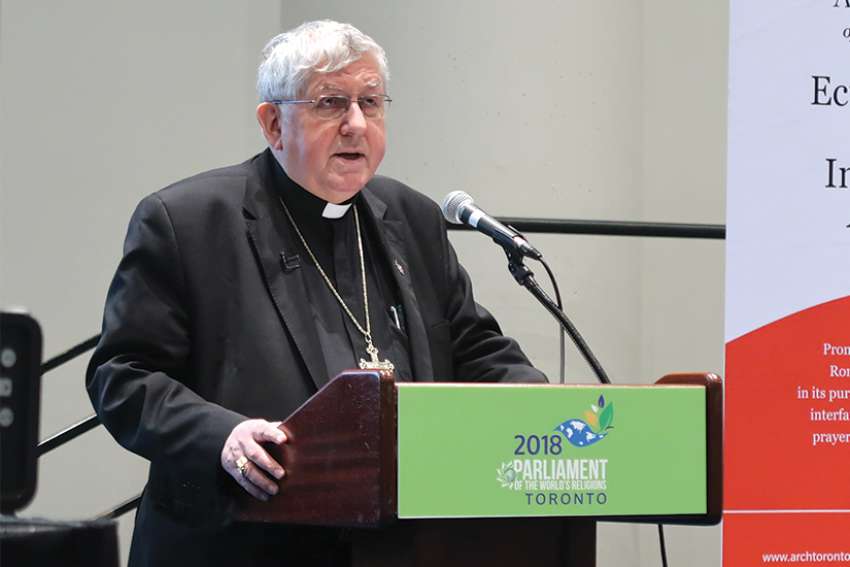Collins delivered that message during his session at the Parliament of the World's Religions Nov. 6 in Toronto. Responding to a question about the caravan of Central American migrants approaching the U.S.-Mexico border, Collins said that Christians are called to serve those in need.
He cited the example of Jesus washing the feet of his disciples, including Judas who He knew would betray Him.
"It is obvious in their conversations later when Jesus said to him, 'Whatever you're going to do, do it quickly,'" said Collins. "That He did that for the one who would betray Him is itself a very powerful thing of what we need to do and calls us to take that risk of faith."
Collins added that the government also has a legitimate role in protecting the people against those who might come to harm them.
"That decision of who gets into the country is a government decision, but we are ready to help people in need and we've been that way for many, many years," he added.
In his session, Collins said it has always been in the DNA of the Archdiocese of Toronto to serve the migrants and refugees that come to the city. Toronto's first Catholic bishop Michael Power set the precedent in the summer of 1847 when he welcomed 20,000 Irish immigrants who were looking to escape the Great Famine in their homeland.
Typhus was rife among the immigrants and Power contracted the disease while working in the fever sheds where victims were bring cared for. He himself succumbed to the disease in October.
"Certainly, (Power) took a leading role but so did many of the Anglicans, the Methodists, the other people of these community," said Collins. "But in those days of the great suffering during that summer, all the people came together to welcome those 20,000 people in Toronto who came unexpected and unannounced to our shores."
Today, the Office of Refugees at the Archdiocese of Toronto (ORAT) works with several faith organizations in supporting migrants who are escaping war, violence and persecution in their homelands.
Collins said 167 of the 223 parishes (75 per cent) in the archdiocese have sponsored a refugee family's resettlement through Canada's private sponsorship program.
"It is a commitment of this archdiocese to care for the stranger," he said. "We want to help people who must flee their home but the real goal is to help people be able to flourish joyfully in their home. That's another side of this that we need to reflect upon."
The Parliament of the World's Religions is an international conference that represents about 200 religions and spiritualities. Toronto is hosting the conference's 125th year at the Metro Toronto Convention Centre Nov. 1-7.


